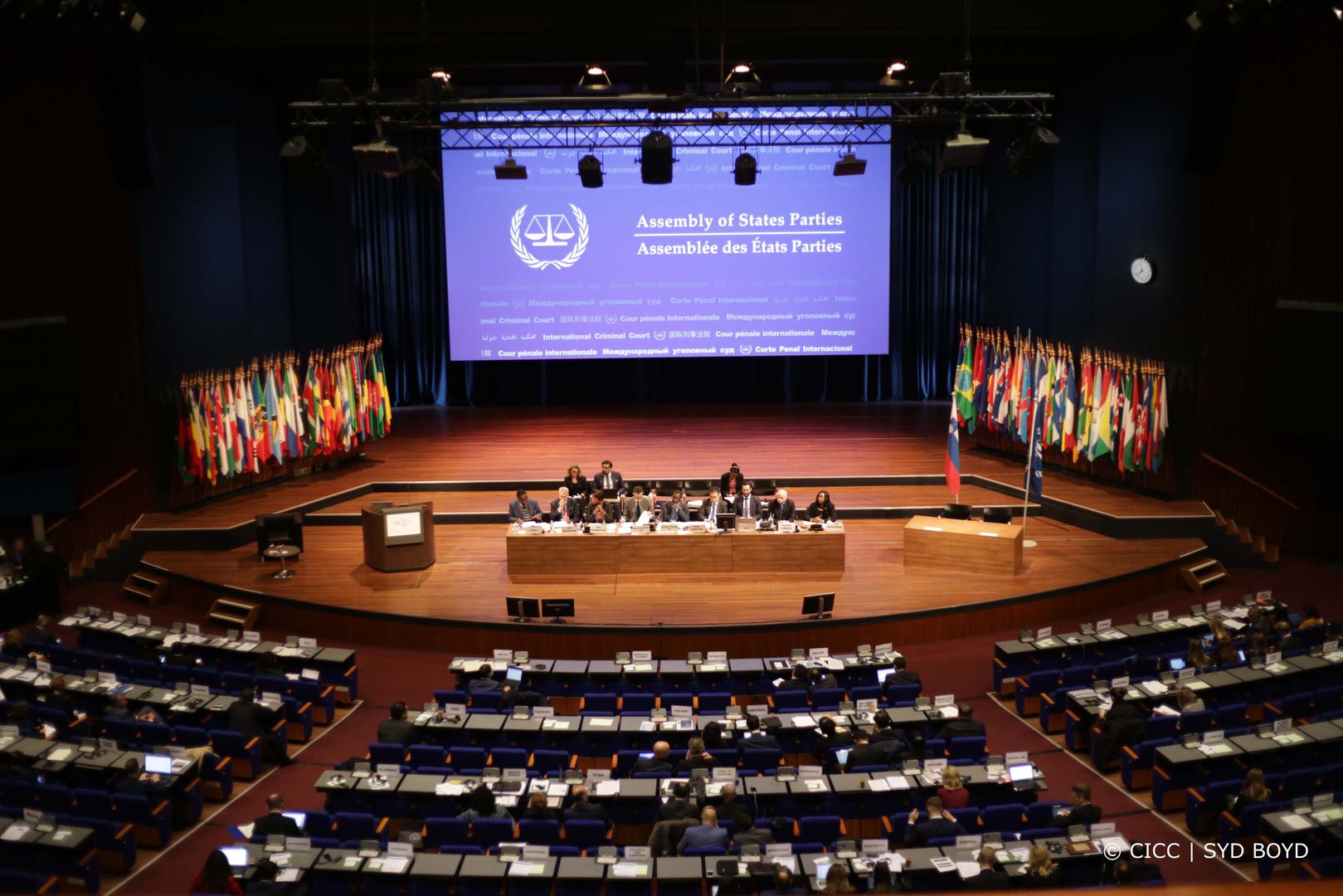ICC: Changes Needed to Deliver Justice

Expand Seventeenth session of the International Criminal Court's Assembly of States Parties in The Hague, Netherlands, December 2018. © 2018 Syd Boyd/Coalition for the International Criminal Court Seventeenth session of the International Criminal Court's Assembly of States Parties in The Hague, Netherlands, December 2018. (The Hague) – The annual meeting of International Criminal Court (ICC) member countries is a pivotal moment to strengthen the court’s delivery of justice, Human Rights Watch said today.
The 18th session of the ICC’s Assembly of States Parties will take place in the Hague from December 2 to 7, 2019. Human Rights Watch issued a 16-page report in advance of the session that addresses serious challenges facing the court and makes recommendations for ICC members. Missteps by court officials in policy and practice, along with a growing workload, inadequate resources, and inconsistent state support, have left the court struggling to deliver on expectations for justice. “Atrocities across the globe are a reminder that the ICC, with all its shortcomings, remains the essential court of last resort,” said Elizabeth Evenson, associate international justice director at Human Rights Watch. “The court’s annual meeting, as well as the 2020 elections for the next ICC prosecutor and a third of the court’s judges, present critical opportunities for change that member countries and justice supporters shouldn’t miss.” In May, the court’s leadership responded to several notable setbacks by requesting an independent review of court practice by expert practitioners, in line with previous assessments carried out for earlier international tribunals.
The experts, whose appointment is expected to be approved at the upcoming Assembly session, will be mandated to issue a report and recommendations for institutional changes by September 2020.
The expert group’s work could help strengthen the ICC’s effectiveness, but it should respect the court’s judicial and prosecutorial independence, Human Rights Watch said. Countries at the upcoming session should ensure that the group begins work promptly with the necessary resources and independence.
The court is also facing growing threats to its mandate from governments. Earlier in 2019, the Trump administration revoked ICC Prosecutor Fatou Bensouda’s entry visa to the United States, taking up one of several threats the administration had previously made against court officials.
These were prompted by potential ICC investigations in Afghanistan of US military and Central Intelligence Agency personnel for alleged crimes related to the conflict there, as well as of nationals of close allies such as Israel. Hearings in the appeal of the decision not to allow Bensouda to proceed with an investigation in Afghanistan are scheduled for December 4 to 6. ICC member countries should voice their support for the court as a crucial, yet fragile component of the international rules-based order tasked to tackle entrenched impunity where it has authority, regardless of the nationality of those allegedly responsible for the crimes. Member countries should also take other steps to strengthen the court. Election of the most highly qualified individuals in 2020 is a central responsibility of member countries and requires a strictly merit-based approach. Countries should adopt measures at the session to strengthen the mandate of the Assembly’s advisory committee to ensure rigorous assessment of judicial candidates, Human Rights Watch said. Member countries will also set the court’s budget for next year. For some time, a few members have urged minimizing budget increases. A fresh investigation into the reported forced deportation of ethnic Rohingya from Myanmar into Bangladesh shows that the gap between the court’s resources and the justice needs on its docket is greater than ever. “A stronger ICC firmly supported by its member countries will be more resilient to efforts to derail its crucial mandate,” Evenson said. “Governments meeting at this year’s Assembly session should strengthen the ICC to ensure that the court can effectively deliver on expectations for.
Read the full article at the original website
References:
- https://www.hrw.org/topic/international-justice/international-criminal-court
- https://www.hrw.org/news/2019/11/18/human-rights-watch-briefing-note-eighteenth-session-international-criminal-court
- https://www.hrw.org/news/2018/06/11/no-redress-central-african-victims
- https://www.hrw.org/about/people/elizabeth-evenson
- https://asp.icc-cpi.int/iccdocs/asp_docs/ASP18/ICC-ASP-18-Bureau-5.pdf.pdf
- https://digitallibrary.un.org/record/406194/files/A_54_634-EN.pdf
- https://www.nytimes.com/2019/04/05/world/europe/us-icc-prosecutor-afghanistan.html
- https://www.hrw.org/news/2019/03/15/us-threatens-international-criminal-court
- https://www.hrw.org/news/2019/04/23/afghanistan-icc-abandons-field
- https://www.hrw.org/news/2019/11/19/west-wouldnt-hold-myanmar-accountable-ethnic-cleansing-now-small-african-nation
